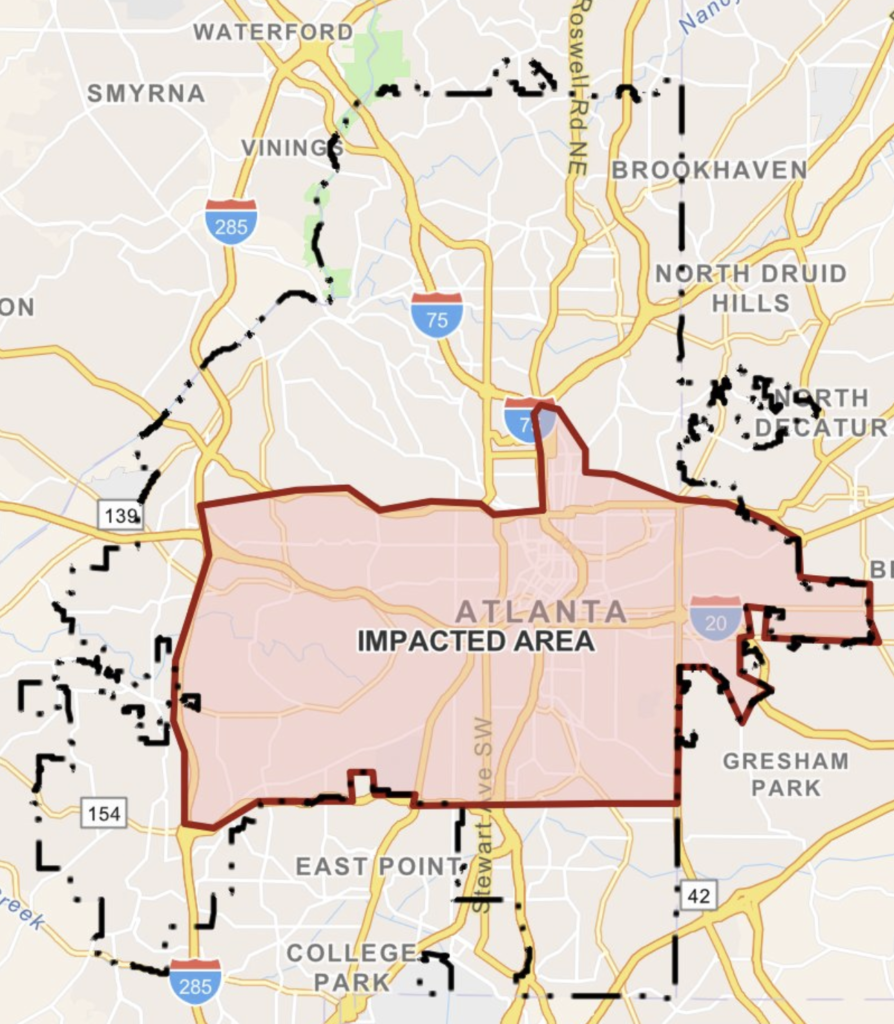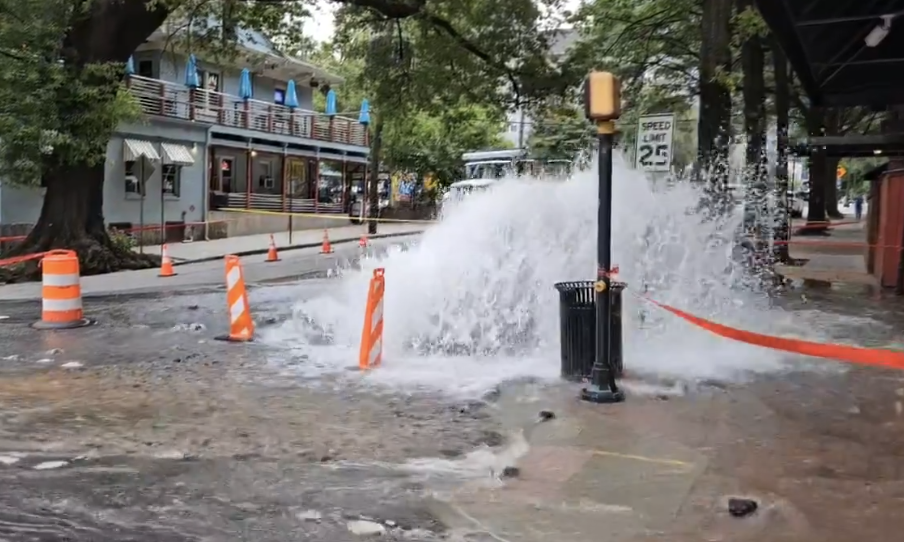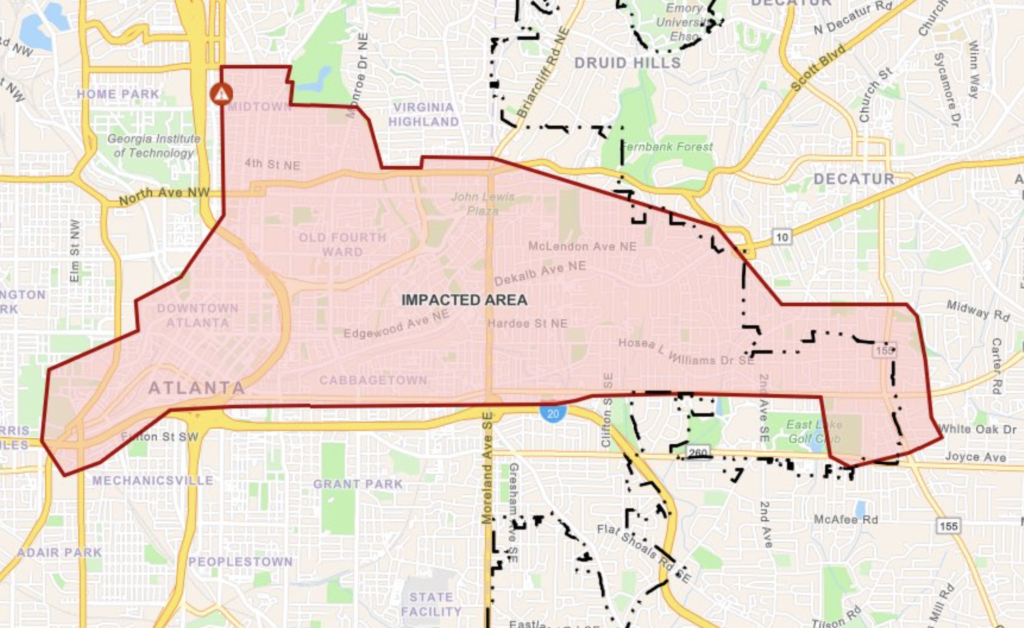Atlanta residents may occasionally face boil water advisories due to unforeseen water system disruptions. These advisories are critical for ensuring public health and safety. When a boil water advisory is issued, it's essential to understand the reasons behind it and the necessary precautions to take. This guide will provide you with all the information you need to stay safe during such situations.
Water contamination can occur for various reasons, including infrastructure issues, natural disasters, or maintenance work. In Atlanta, GA, the local water authorities issue boil water advisories to notify residents when there's a potential risk of harmful bacteria or pathogens in the water supply. Understanding the purpose of these advisories is the first step toward safeguarding your health and well-being.
This article delves deep into the topic of boil water advisories in Atlanta, covering everything from the causes and effects to preventive measures and official guidelines. By the end of this guide, you'll be well-equipped to handle any boil water advisory that may arise in the future.
Read also:Diva Flawless Onlyfans
Table of Contents
- What is a Boil Water Advisory?
- Why Are Boil Water Advisories Issued?
- Common Causes of Boil Water Advisories in Atlanta GA
- Health Risks Associated with Contaminated Water
- Precautions to Take During a Boil Advisory
- The Proper Boiling Process
- Alternatives to Boiling Water
- Official Guidelines and Resources
- Frequently Asked Questions About Boil Water Advisories
- Conclusion: Stay Safe and Informed
What is a Boil Water Advisory?
A boil water advisory is a public health notification advising residents to boil their tap water before consuming it. This precautionary measure is implemented when there's a possibility of harmful microorganisms in the water supply. In Atlanta, GA, these advisories are issued by local water authorities to protect the community from potential waterborne illnesses.
Boil water advisories can last from a few hours to several days, depending on the issue's severity and the time required to resolve it. During this period, it's crucial to follow the guidelines provided by the authorities to ensure your safety.
Here are some key points about boil water advisories:
- They are typically issued due to water system disruptions or contamination risks.
- Boiling water kills harmful bacteria and pathogens.
- Advisories may affect entire neighborhoods or specific areas.
Why Are Boil Water Advisories Issued?
Water System Disruptions
One of the primary reasons for issuing a boil water advisory is a disruption in the water system. This can occur due to broken water mains, power outages, or maintenance work. When the water pressure drops, it increases the risk of contaminants entering the system.
Natural Disasters
Natural disasters such as floods, hurricanes, or earthquakes can compromise water quality. In Atlanta, heavy rainfall or storms may lead to water contamination, prompting the issuance of a boil water advisory.
Infrastructure Issues
Old or poorly maintained infrastructure can also contribute to water contamination. In some cases, repairs or upgrades to water systems may require temporary boil water advisories to ensure safety during the process.
Read also:Kirstentoosweet Leak
Common Causes of Boil Water Advisories in Atlanta GA
Atlanta, like many cities, faces unique challenges when it comes to water quality. Below are some of the most common causes of boil water advisories in the area:
- Water main breaks
- Planned maintenance or repairs
- Power outages affecting water treatment facilities
- Natural disasters leading to flooding or contamination
Each of these situations poses a potential risk to water quality, necessitating the issuance of advisories to protect public health.
Health Risks Associated with Contaminated Water
Consuming contaminated water can lead to various health issues, including gastrointestinal illnesses, infections, and other waterborne diseases. Some of the most common risks include:
- E. coli infection
- Giardiasis
- Cholera
- Hepatitis A
It's essential to follow boil water advisory instructions to avoid these health risks, especially for vulnerable populations such as children, elderly individuals, and those with compromised immune systems.
Precautions to Take During a Boil Advisory
Boiling Water
Boiling water is the most effective way to kill harmful bacteria and pathogens. Follow these steps:
- Bring water to a rolling boil for at least one minute.
- Let it cool before use.
- Store boiled water in clean, airtight containers.
Avoiding Tap Water for Certain Uses
During a boil advisory, avoid using tap water for the following:
- Drinking
- Cooking
- Brushing teeth
- Making ice
Instead, use boiled or bottled water for these purposes.
The Proper Boiling Process
To ensure your water is safe to consume, follow this step-by-step boiling process:
- Fill a clean pot or kettle with tap water.
- Place the pot on the stove and bring the water to a rolling boil.
- Boil the water for at least one minute. At elevations above 6,500 feet, boil for three minutes.
- Let the water cool before using it.
This process eliminates most harmful bacteria and pathogens, making your water safe to drink.
Alternatives to Boiling Water
While boiling is the most reliable method, there are alternatives you can consider:
- Using bottled water for drinking and cooking.
- Using water purification tablets or filters, though these may not eliminate all contaminants.
It's important to note that alternatives may not be as effective as boiling, so always follow the advisory guidelines provided by local authorities.
Official Guidelines and Resources
Atlanta residents can stay informed about boil water advisories through official channels:
- Atlanta Water Works website
- Local news outlets
- Social media platforms
These resources provide updates on current advisories, tips for staying safe, and notifications when the advisory is lifted.
Frequently Asked Questions About Boil Water Advisories
How Long Should I Boil Water?
You should boil water for at least one minute. At higher elevations, boil for three minutes to ensure all contaminants are eliminated.
Can I Shower During a Boil Advisory?
Yes, but avoid swallowing water while showering. For young children or those with compromised immune systems, consider using bottled water for bathing.
What Should I Do If I Accidentally Drink Contaminated Water?
Monitor for symptoms of illness, such as diarrhea or vomiting. If symptoms develop, seek medical attention promptly.
Conclusion: Stay Safe and Informed
Boil water advisories in Atlanta, GA, are an essential measure to protect public health and safety. By understanding the causes, health risks, and necessary precautions, you can ensure your well-being during these situations. Always stay informed through official channels and follow the guidelines provided by local authorities.
We encourage you to share this article with friends and family to help them stay safe. For more information on water safety and other critical topics, explore our other articles on the site. Together, we can build a safer, healthier community.
Data Sources:


